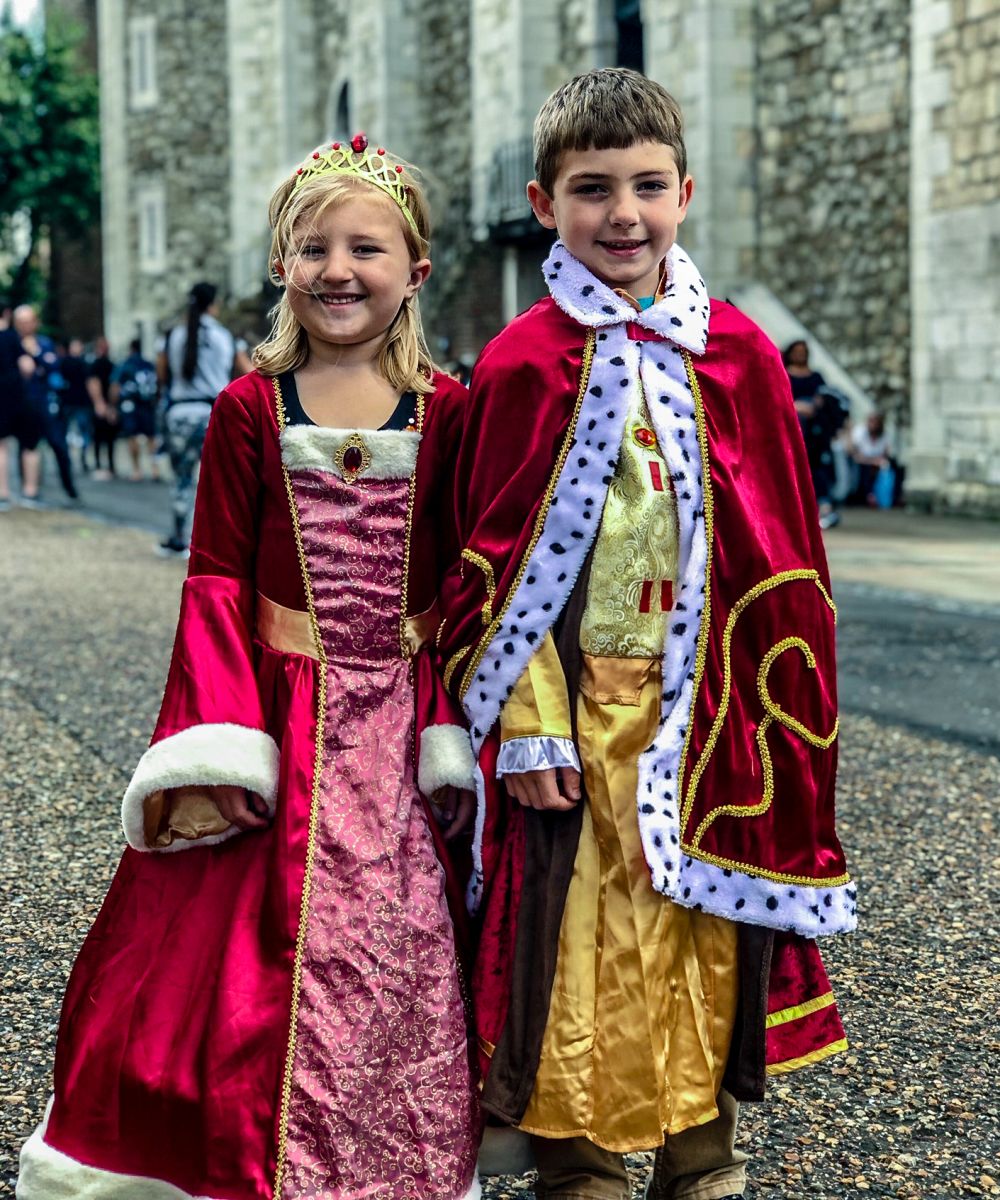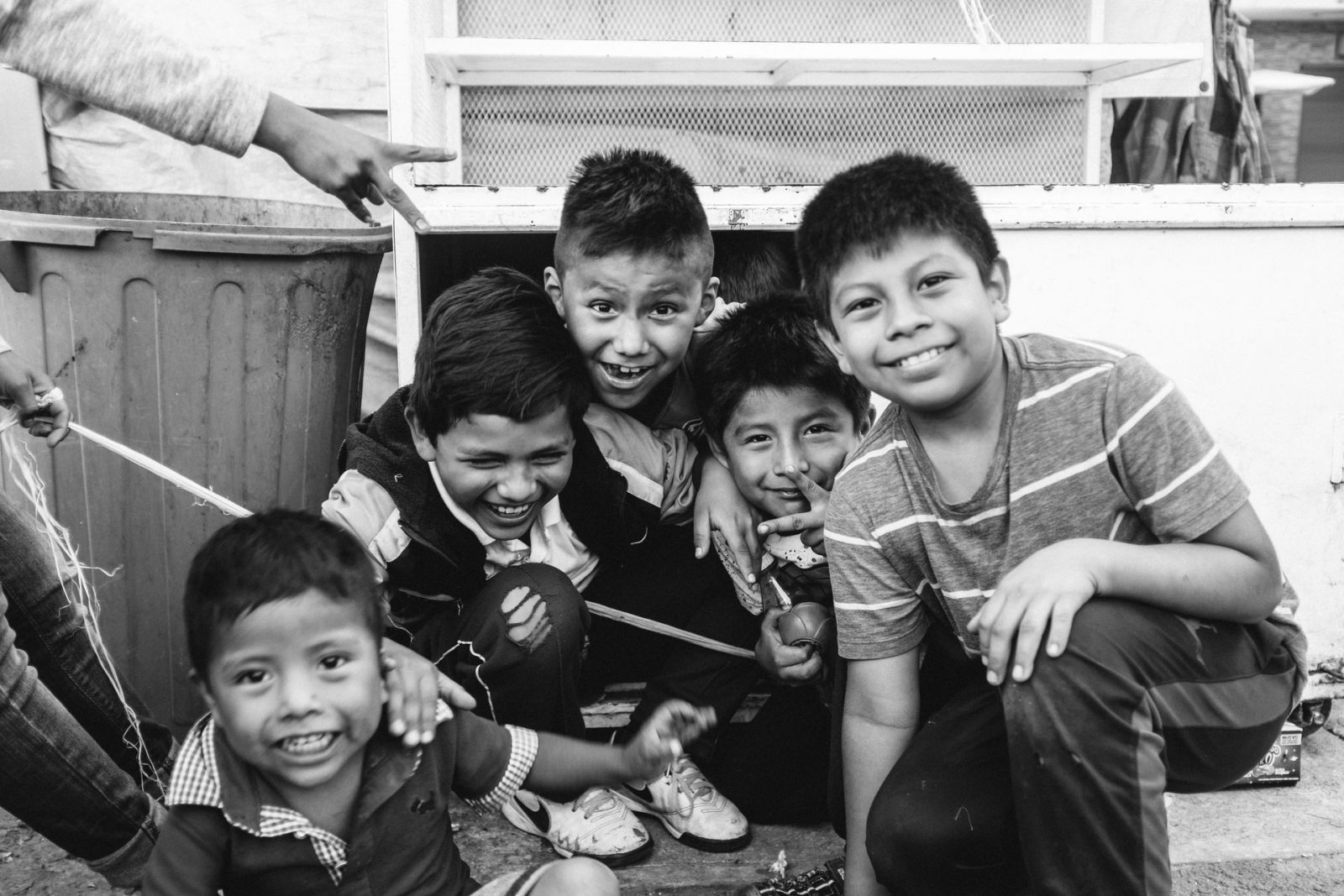| Caleb the Most
|
|
| Thursday, August 29, 2019 | |
Kids and Supper. You never know what’s on the menu—and I’m not talking about food. I speak of the delectable dialogue that often spills on to the table (along with the occasional glass of milk). The other night over dinner, our daughter and son-in-law engaged the family in a conversation about the gospel. Eleven-year-old Josie was there. So were Caleb, age seven, and Lucy, who is five. It wasn’t long before someone quoted Romans 3:23: “For all have sinned and….” Boom! At that precise moment in the verse recitation—before they could go any further than that first phrase—Lucy interjected, “But Caleb the most!” While five-year-olds are not generally known for their tact, Lucy's mouth has a near-legendary capacity for articulate assault. And there it was: Lucy's assessment of her older brother’s sin record: “the most.”
Might be fun to drill deeper with Lucy. Does she mean Caleb has the most sins of any of her siblings? More than anyone in her entire family? Or is she thinking more globally—as in Caleb has the most sins of anyone on the planet? The story takes a deeper dive into comedy when you grasp the truth about Lucy. For most of her first four years, if Lucy were unhappy with her older brother Caleb, she would bite him. And not just a little. It grew to the point where poor Caleb would warn strangers entering their front door, “hers a biter.” James’ warning to “remove the plank from your own eye before complaining about the speck in another” comes to mind. Indeed, "All have sinned…." Including me. Including you. Including Lucy.
|
|
| A Cup of Compassion
|
|
| Thursday, August 22, 2019 | |
Flames of fury. Choking smoke. Paris in shock. Last April, we gawked at our phones, tablets, and TVs as the iconic Notre Dame Cathedral smoldered. The sight prompted me to grab a book that had long sat on my shelf unread: "The Hunchback of Notre Dame." Victor Hugo’s 1831 novel unfolds the epic tale of a beautiful gypsy, Esmeralda. Pursued by the evil archdeacon Claude Frollo, she is protected by Quasimodo, Notre Dame's disfigured bell ringer. His one eye, bulging forehead, and trademark hump make for a grotesque character that evinces shock and shun from nearly all. Quasimodo "has a back like a dome and legs like twisted columns," said one. Ultimately, he endured the pain of a public "pillory" in front of a seething crowd. This meant he was shoved into an iron cage which dangled in the ferocious afternoon sun, his feet and wrists shackled while his back endured lash after lash from a whip. Then it was the public’s turn to humiliate.
Quasimodo cried out for water. In response, someone hurled a stone at his head. Another flung a broken pitcher at his chest. Not one soul in the jeering mass had so much as a drop of pity for the bell ringer. That’s when Esmerelda stepped forward. She produced a gourd of water and held it up for the tortured man. He drank freely—as a single tear coursed down his misshapen face. Hugo writes, “It would have been a touching sight anywhere—this beautiful, fresh, pure, charming girl, who was at the same time so weak…hastening to the relief of so much wretchedness, deformity, and malevolence. On a pillory, the spectacle was sublime." You and I live in a day where the crowd is increasingly heartless—even hostile—toward anyone different or slow or less than beautiful. Best not be overweight. Or wrinkled. Or wearing the wrong clothing labels. Empathy is in short supply. All around us are people thirsty for a small cup of compassion. I ask, who is the Quasimodo in your life—the one that others have neglected, shunned, or beaten down? Swimming in waterfalls of grace from our Savior—will we not share a cup with our Quasimodo? I dare you. Do something today that’s not just good or great—but sublime. Share a cup of compassion with someone who desperately needs it.
|
|
| The Great Train Rescue
|
|
| Thursday, August 15, 2019 | |
It was an uneventful train rain ride on an uneventful afternoon. Until it wasn’t. Stepping off on to the station platform in my home town, I heard a voice yelling. Actually, it would be more accurate to say he was screaming: "No! No! No!" As he shouted, the train conductor's arms were flailing—but only for a moment. That’s when he dove off the train. Having managed to dodge him, I had to know why he was rushing with the power of an NFL receiver. Then I spied a little boy one car back exiting the train with his dad. Somehow, the kid lost his grip on the string of his purple balloon. There was little wind, but enough that the thing drifted down below the platform next to the wheels of the train car—which was about to move out. And that's just where the kid was reaching. The conductor dove into the pile and swept the child to safety, sparing not one second, not one shred of effort.
As I look back, there was nothing pleasant about the conductor’s warning. The scene was jolting. But doesn’t that sound like another rescue story—ours? Ponder anew what it cost Jesus to save you and me. There was nothing pleasant about the whip that tore the flesh from Jesus’ back. Or the crown that drizzled blood from His head. Or the nails that pinned his hands and feet to the cross. Which takes me to one important takeaway: When God says, “No!” He doesn’t do so for the sake of being negative. He does so for our good. He rescued us once on the cross. And He has every intention of keeping us safe. Beloved radio preacher Robert A. Cook reminds, “God is undertaking to get you home to heaven safely. And nothing is going to deter His holy purpose.”
|
|
| A Good Goodbye
|
|
| Thursday, August 08, 2019 | |
When you're two, being with Grandma and Grandpa is cool. When you're ten—not so much. Tim was at that awkward stage but never failed to hug his grandparents every visit. Wishing to reinforce good behavior, I once told him, "You know, I love the way you give such great hugs to Grandma and Grandpa. That's very nice of you! And I know they love, it too." Timmy's reply: "Well, they won't be around forever. Someday they're going to die" (umm…a bit blunt, I thought). But what he said next, I have never forgotten: "That's why I always give a good goodbye." Ironically, the elusive nature of life seems to elude most of us "sophisticated" adults. Proverbs 27:1 advises, "Do not boast about tomorrow, for you do not know what a day may bring." And James 4:14 reminds, "You are a mist that appears for a little while and then vanishes." Meaning—you and I had better learn what it means to give a "good goodbye." On a hot September night, I heard the echo of that ten-year-old boy's commitment to a "good goodbye" above the beeps and blips of medical equipment in an intensive care room. His wisdom prompted me to grab my mom's hand and stroke her arm. I told her I loved her. I quoted Psalms 91 and prayed with her. And then I kissed her goodbye. My last. But at least it was a good goodbye. Let me ask you a question. When someone you love leaves, do you give them a good goodbye? Really? Is it the kind of goodbye you would be okay with if you never had another shot at it? If that phone call came in the middle of the night bearing the most shocking news, would you be okay with your last goodbye of a week or two ago? Standing there at the casket, would your previous goodbye comfort you, or would it haunt you? If not, there's still time. Today. Now! So pick up the phone. Make that call. Send them a card or email or text! Give everyone you love the gift of a good goodbye. And give it again every time as if each visit is the last. Because someday, it will be.
Lots more wisdom from kids to be found in the book, Kids Sayt the Wisest Things. Get it half-off this Friday!
|
|
| Amigo
|
|
| Thursday, August 01, 2019 | |
Before traveling to Vicente Guerrero in Mexico, I had never even heard of, let alone met, a Oaxacan. They are among the poorest of the poor. Partly because of their “lowly” heritage and partly because they are indigenous, they are looked down upon by many, so they typically get the crummiest of the crummy jobs. If it’s dangerous or back-breaking or low paying, a Oaxacan is usually doing the task. My daughter and I were there to learn about them and minister to them, under the care of a beautiful Mexican ministry. Our host, David, told me that their team regularly delivered a tank of milk to give the kids in one neighborhood some much-needed nutrition. Would we want to drive out with their team, assist them, and help pour the milk? Of course! The next day, the back of our van rattled, and we could hear the warmish milk sloshing the sides of the metal tub. An unkind gravel path demanded too much of tires, shocks, struts—and passengers. But finally, we arrived. We were expected because the kids came crashing out of cardboard houses, tents, and other makeshift homes. Clutched in every child's hand was a plastic cup, many of them filthy. Having been handed a pitcher, I squatted down, one knee in the dirt so that I could reach the kids and their cups. One little fellow cried out, “Mas! Mas!” Even I knew that meant he wanted more. So we gladly refilled his cup. Gulping the milk, he melted into the crowd behind me.
I was so busy filling cup after cup that at first I didn’t feel it. A small hand patted my shoulder. With the kind gesture came the sound of a little boy’s gentle voice: “Amigo!” He couldn’t have been more than four or five. I do not know his name. But he presumed to give me a name I felt I did not deserve—amigo. My initial thought was, How could I possibly be your amigo? Wouldn’t I do much more with this Mexican ministry instead of showing up for a few days if I was really your amigo? The thought haunted me for years. But as I now think about that hot morning when we poured warm milk into the cups of those poorest of the poor, Christ’s words come to mind: “And if anyone gives even a cup of cold water to one of these little ones . . . truly I tell you, that person will certainly not lose their reward” (Matt. 10:42). The fact that we wish we should or could have done more does nothing to erase the smallest gesture of kindness we did perform. The least acts of charity matter—not just now, but for eternity! In the amazing economy of Jesus, even giving a cup of milk to a poor Oaxacan boy is noted and somehow marked for future reward! I think that's a lesson Christ might have been trying to teach me through the voice of a little boy who, in the middle of a hot, dry Mexican morning, downed his second cup of milk, patted me gently on the shoulder, and gave me that kindest of names, “Amigo.” Maybe that’s a message you need to hear, too.
You’ll enjoy a generous collection of stories like this in Kids Say the Wisest Things. Why not get your copy on Amazon! And do me the kindness of leaving a review, would you? Many thanks!
|
|
| Records per page First Prev 46 47 48 49 50 51 52 53 54 55 of 127 Next Last | |
 Jon Gauger Jon Gauger |
|||||||||||||||
| Thursday Thought | |||||||||||||||
|
|
|||||||||||||||
Recent Posts
|



.jpg)

.jpg)